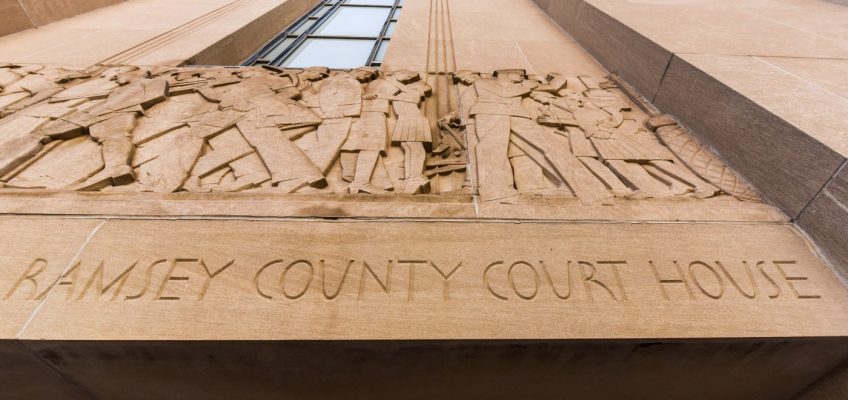The right outdoor furniture for your patio
When the weather warms up, we all enjoy spending more time outdoors. Your patio can be the ideal spot to unwind in the spring and summer, if you add the right furniture.
Patio furniture should be comfy, so you can relax as well outdoors as you do in your living room. However, outdoor furniture also has to be durable enough to hold up to rain, wind and other elements without breaking down quickly.
From outdoor couches to dining tables to chaise lounges, we’ve gathered a list of some of the best patio furniture to help upgrade your outdoor living space into one of the comfiest areas of your home.
What types of furniture can I buy for my patio?
Patio and decks are essentially extensions of the living and dining spaces inside your home, so you can find outdoor furniture similar to the pieces you have in your living room or kitchen. Patio furniture sets are usually the most popular option, featuring a couch or loveseat with armchairs and a coffee table. You can also purchase outdoor sofas, loveseats, club chairs and coffee tables for your patio individually.
Chaise lounges and lounge chairs are another common furniture option for your patio. They’re not only comfortable but also make it easy to catch some sun for an even tan.
If you enjoy dining al fresco, a patio dining set is a must-have. It usually includes a large dining table and four to eight chairs to pair with it. A patio bistro set, which only seats two, is compact enough to fit on the most cramped patio.
Best patio furniture sets
Top patio furniture set
Christopher Knight Home Navan 4-Piece Chat Set
What you need to know: This low-profile, sturdily constructed patio furniture set can seat up to four but still fits on most small to mid-size patios.
What you’ll love: It features a powder-coated aluminum frame and weather-resistant cushions for improved durability. It includes a loveseat, two club chairs and a coffee table. It is easy to assemble.
What you should consider: The cushions are somewhat flimsy.
Top patio furniture set for the money
Safavieh Rocklin Teak 4-Piece Patio Set
What you need to know: This lovely wooden furniture set adds coastal flair to any patio and provides seating for up to four without breaking the bank.
What you’ll love: The set is made of durable acacia wood and features weather-resistant foam-filled cushions that can be cleaned with water and a brush. It includes a loveseat, two chairs and a coffee table.
What you should consider: The cushions don’t offer much support, and the wood stain can be uneven in some spots.
Best outdoor sofa sets
Top outdoor sofa set
Modway Quest Wicker Rattan Patio Daybed with Canopy
What you need to know: This striking patio daybed set offers a unique modern look and a truly comfortable, versatile design that provides shade from the sun.
What you’ll love: The frame is made of powder-coated aluminum and synthetic rattan weave treated with UV protection to prevent fading. The upholstery is fade- and water-resistant. The pieces come apart, so you can arrange them in various configurations.
What you should consider: The cushions can easily fall off the daybed.
Top outdoor sofa set for the money
Mainstays Stanton Cushioned 4-Piece Patio Conversation Set
What you need to know: This set provides plenty of bang for your buck with a highly durable loveseat, two chairs and a coffee table that can fit even on a smaller patio.
What you’ll love: It features a sturdy powder-coated steel frame. The cushions are covered with water-resistant fabric and stay in place. The coffee table has a sleek, modern glass top.
What you should consider: The cushions aren’t very thick and don’t provide much support.
Best outdoor club chairs
Top outdoor club chair
Oakmont 2 Piece Outdoor Furniture Patio Bistro Chairs
What you need to know: This set includes two club chairs that can fit on nearly any patio, deck or terrace and are seriously comfortable thanks to the included cushions.
What you’ll love: Each chair boasts a long-lasting iron frame. The cushions are removable for easy cleaning and are available in red, blue, or brown cushion covers.
What you should consider: Some people reported issues with the chairs rusting quickly.
Top outdoor club chair for the money
Crosley Furniture Sedona Solid-Cast Aluminum Outdoor Club Chair
What you need to know: This chair is extremely sturdy and well-constructed despite its more affordable price tag.
What you’ll love: This chair features durable cast aluminum construction. It offers a comfortable, contoured seat and is treated with a UV-resistant coating.
What you should consider: The chair feels fairly lightweight.
Best outdoor chaise lounges
Top outdoor chaise lounge
Crosley Furniture Palm Harbor Outdoor Wicker Chaise Lounge
What you need to know: This chaise lounge combines form and function with a stylish, comfortable design perfect for sunbathing or napping on your patio.
What you’ll love: The durable steel frame is built to last. The moisture-resistant cushion is extremely thick and supportive. The chair adjusts in six reclining positions.
What you should consider: Assembly can be somewhat difficult.
Top outdoor chaise lounge for the money
KingCamp Patio Lounge Chair
What you need to know: This chaise lounge may be fairly basic, but it folds easily for storage and can be moved around your patio.
What you’ll love: It’s made of sturdy, anodized steel and 600D Oxford fabric and can hold up to 300 pounds. The pillow is removable, allowing you to adjust its position and making cleaning easier.
What you should consider: The seat is pretty low to the ground and may be too firm for some.
Best patio dining sets
Top patio dining set
Safavieh 7-Piece Outdoor Living Horus Dining Set
What you need to know: This dining set offers a unique, attractive look and seats up to six despite its small footprint.
What you’ll love: Its strikingly modern look can give any patio a resort-like feel. It includes a table and six matching stools in a neutral gray color. The stools fit under the table when not in use.
What you should consider: It can take a lot of time to put together.
Top patio dining set for the money
Birch Lane Fleur 2-person Square Outdoor Dining Set with Cushions
What you need to know: This simple, two-person set is perfect for putting on an apartment balcony or small patio.
What you’ll love: The chairs can hold up to 250 pounds, and the foam cushions are removable.
What you should consider: The table is small and can be a little wobbly.
Best patio bistro sets
Top patio bistro set
Oakland Rose Patio Bistro Set
What you need to know: This bistro set comfortably seats two on even the smallest patios, and its stunning rose design makes it a striking piece for your outdoor space.
What you’ll love: It includes a table and two chairs. The rust-free cast aluminum and cast iron construction is highly durable. It assembles quickly and easily.
What you should consider: The set is relatively small, so it may not provide as much space as you’d like.
Top patio bistro set for the money
Grand Patio Premium Steel Patio Bistro Set
What you need to know: This folding bistro set stands out for its bold color options and budget-friendly price tag.
What you’ll love: It’s made of powder-coated, rust-resistant steel and folds for easy storage. It’s available in several colors: black, peacock blue, red, sage green, white and yellow.
What you should consider: It isn’t as sturdy as some other bistro sets.
Best patio bar sets
Top patio bar set
Best Choice Products 7-Piece Outdoor Rattan Wicker Bar Dining Set
What you need to know: This attractive patio bar can do double-duty as a dining set and fits even in smaller outdoor spaces.
What you’ll love: It’s made of charming weather-resistant wicker that’s tightly woven and reinforced with a steel frame. The bartop features tempered glass for a modern look. The stool cushions feature high-quality foam and durable polyester covers.
What you should consider: The bar is taller than other patio models, which may not be to everyone’s taste.
Top patio bar set for the money
Suncrown 3-Piece Outdoor Wicker Bar Set
What you need to know: A highly durable set, this patio bar looks and performs like it costs more than it does, making it a great value.
What you’ll love: It’s made of sturdy, weather- and UV-resistant synthetic resin wicker. It features a tempered glass bar top and two storage shelves. It comes with two stools and offers easy assembly.
What you should consider: While assembly is easy, it can take up to 2 hours.
Prices listed reflect time and date of publication and are subject to change.
Check out our Daily Deals for the best products at the best prices and sign up here to receive the BestReviews weekly newsletter full of shopping inspo and sales.
BestReviews spends thousands of hours researching, analyzing and testing products to recommend the best picks for most consumers. BestReviews and its newspaper partners may earn a commission if you purchase a product through one of our links.




